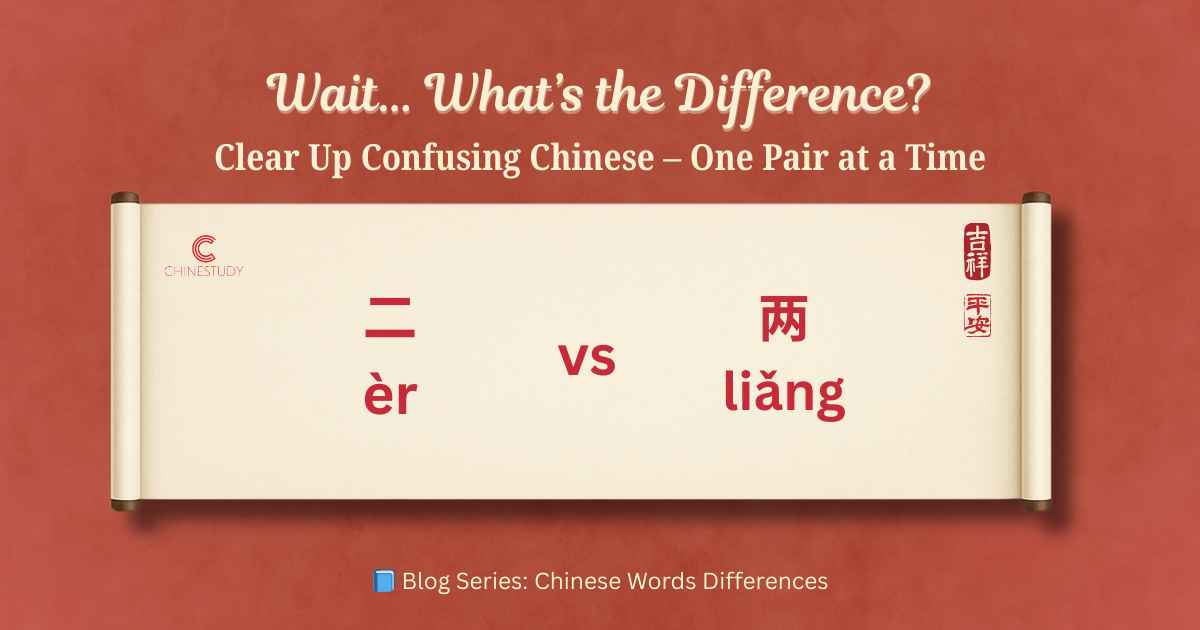
✌️ 二 èr vs 两 liǎng – What’s the Difference?
Think both 二 (èr) and 两 (liǎng) mean “two”? Yes, but they’re not the same! Learn the difference and when to use each one with real examples and easy tips.
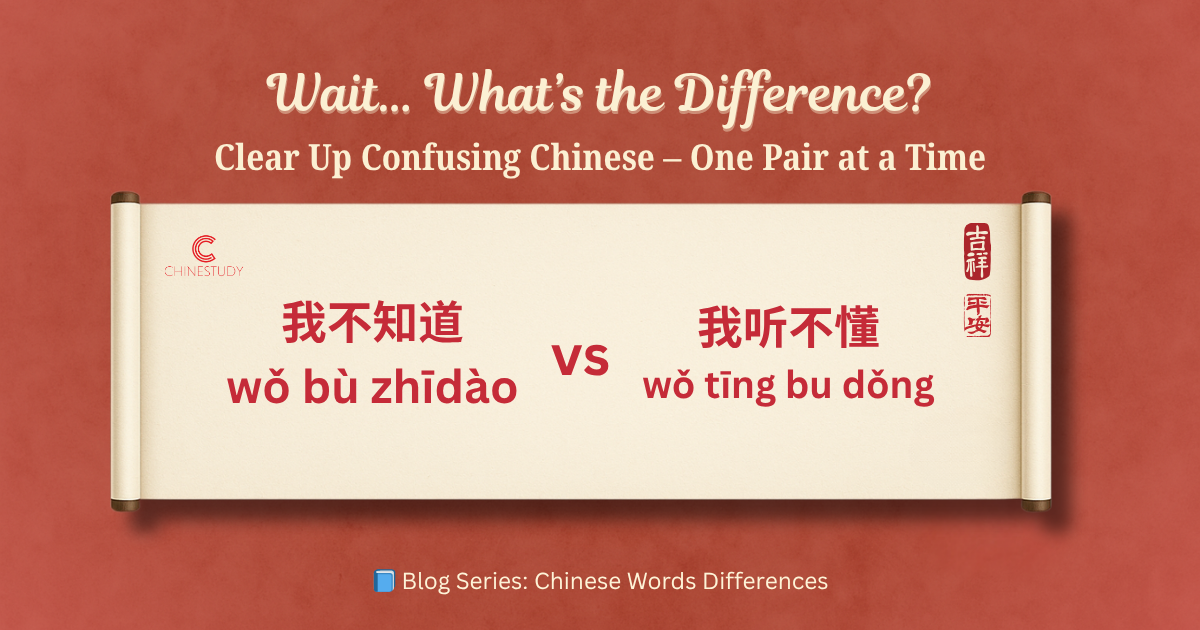
🤔 我不知道 vs 我听不懂 – What’s the Difference?
Think both mean “I don’t understand”? Not quite! Learn the real difference between 我不知道 and 我听不懂 — and when to use each in Chinese conversation.
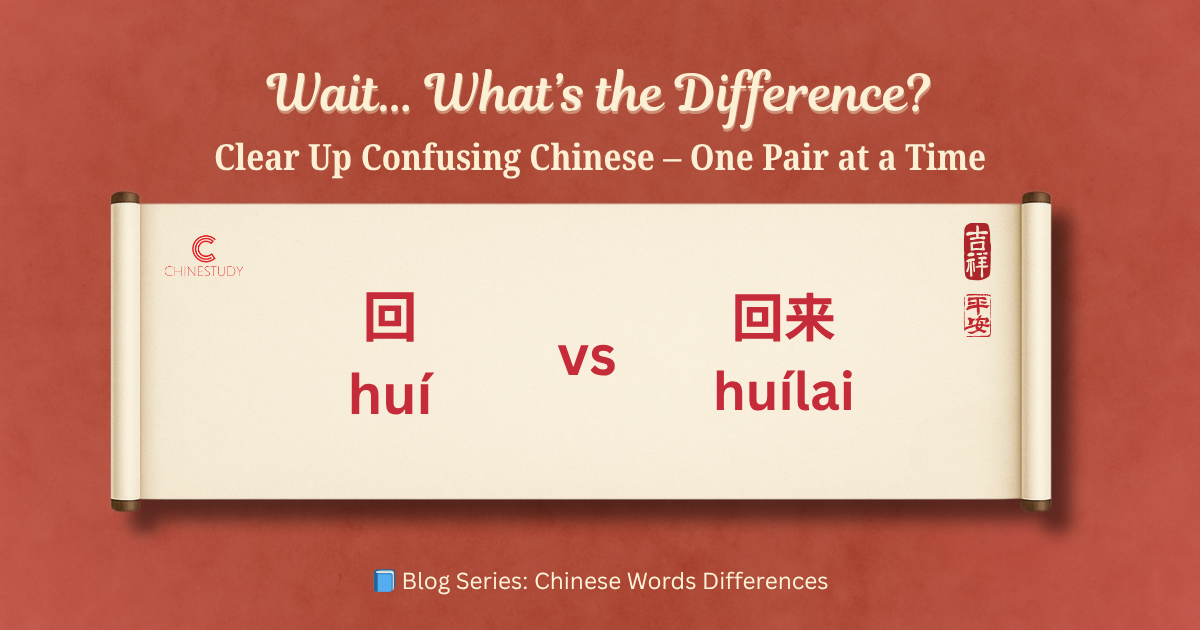
🔄 回 huí vs 回来 huílai – What’s the Difference?
Not sure when to use 回 or 回来? They both mean “to return,” but they’re not always the same. This blog shows you the real difference — with simple tips and clear examples.
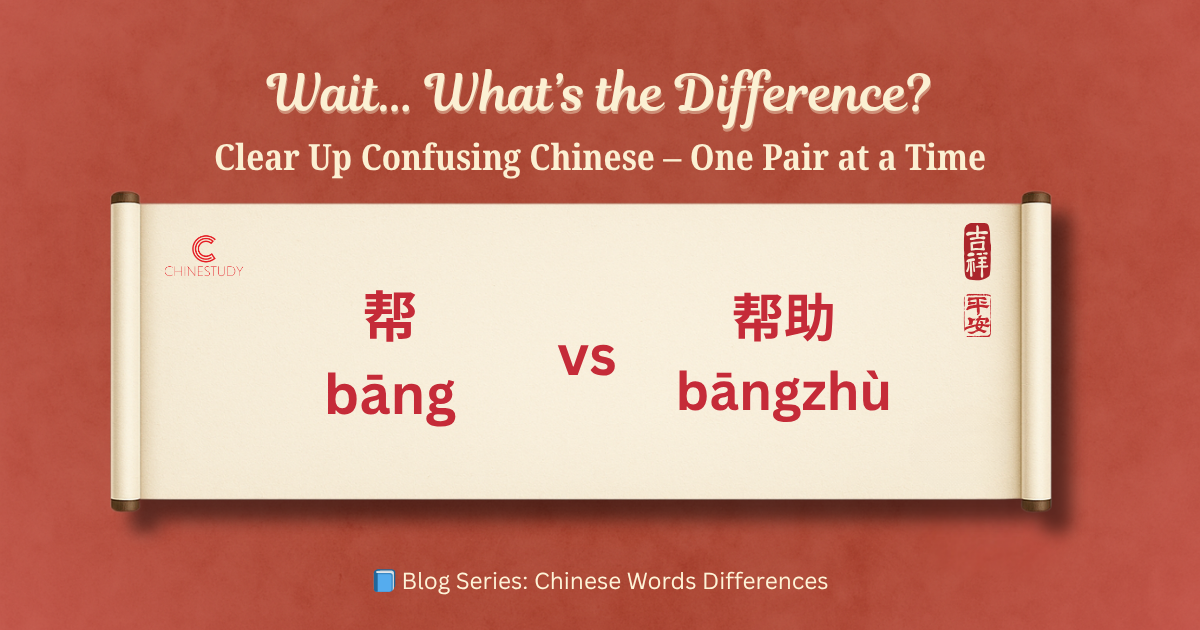
🧐 帮 bāng vs 帮助 bāngzhù – What’s the Difference?
帮 and 帮助 both mean “help,” but they aren’t always used the same way! Learn when to use each one naturally in Chinese, with clear rules, real examples, and a quick practice quiz.
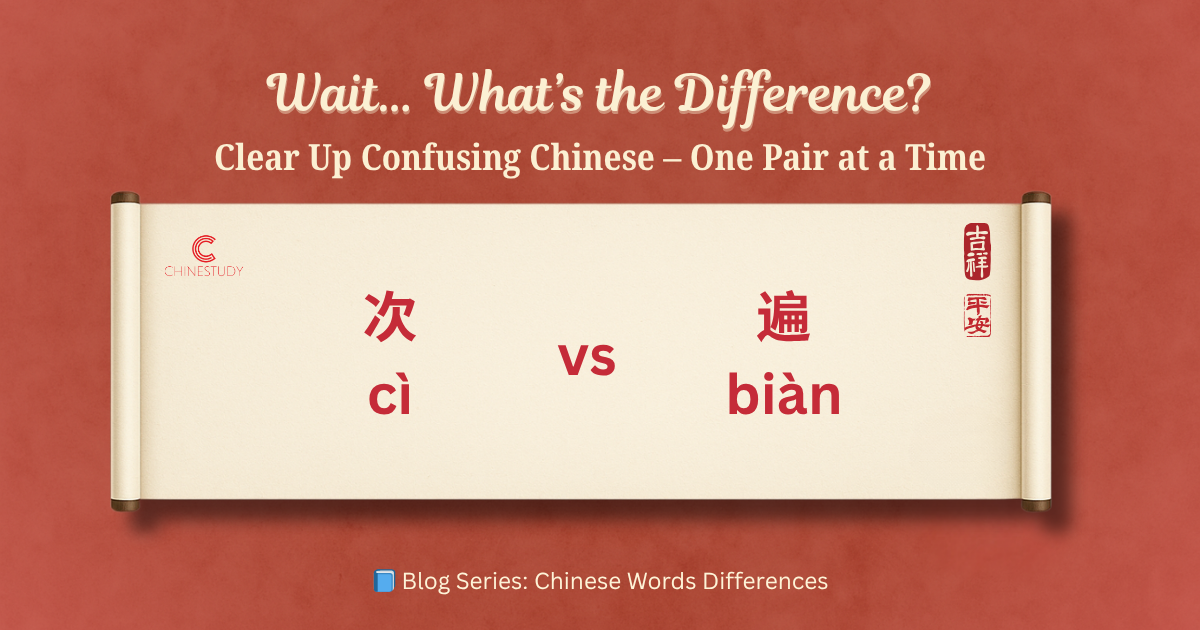
🌀 次 cì vs 遍 biàn – What’s the Difference?
Both 次 and 遍 mean “time(s),” but they’re not the same! Learn when to use 次 for counting actions, and when 遍 is better for complete processes — with examples, mistakes, and a quick quiz.
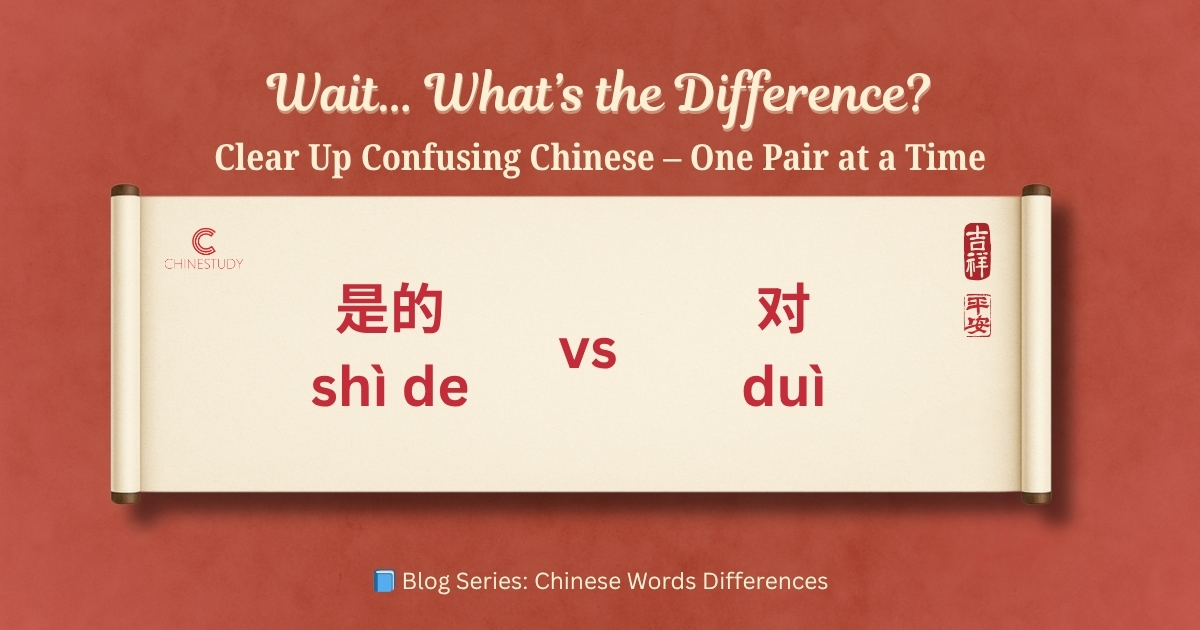
🗣 是的 shì de vs 对 duì – What’s the Difference?
Both 是的 and 对 can mean “yes” — but they’re not exactly the same! Learn when to use which, how they differ in tone, and when they’re interchangeable (with examples and a quick quiz).
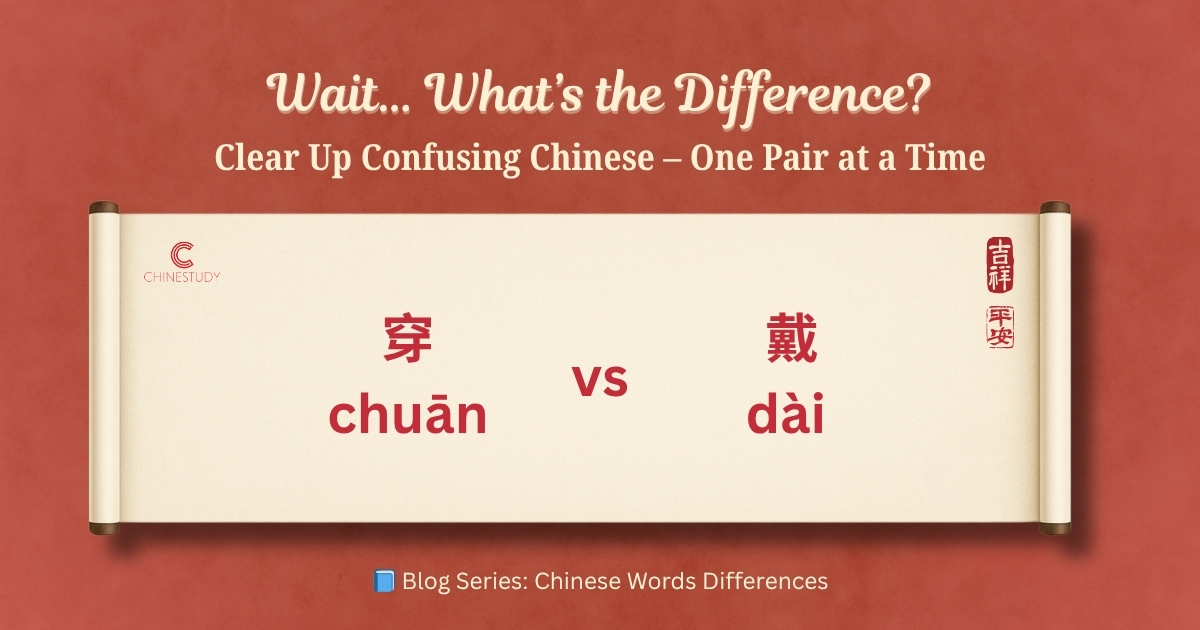
👗 穿 chuān vs 戴 dài – What’s the Difference?
Think both 穿 and 戴 mean “to wear”? Not quite! In Chinese, different words are used for clothing vs accessories. This blog shows you when to use which — with examples, mistakes, and a quick quiz!
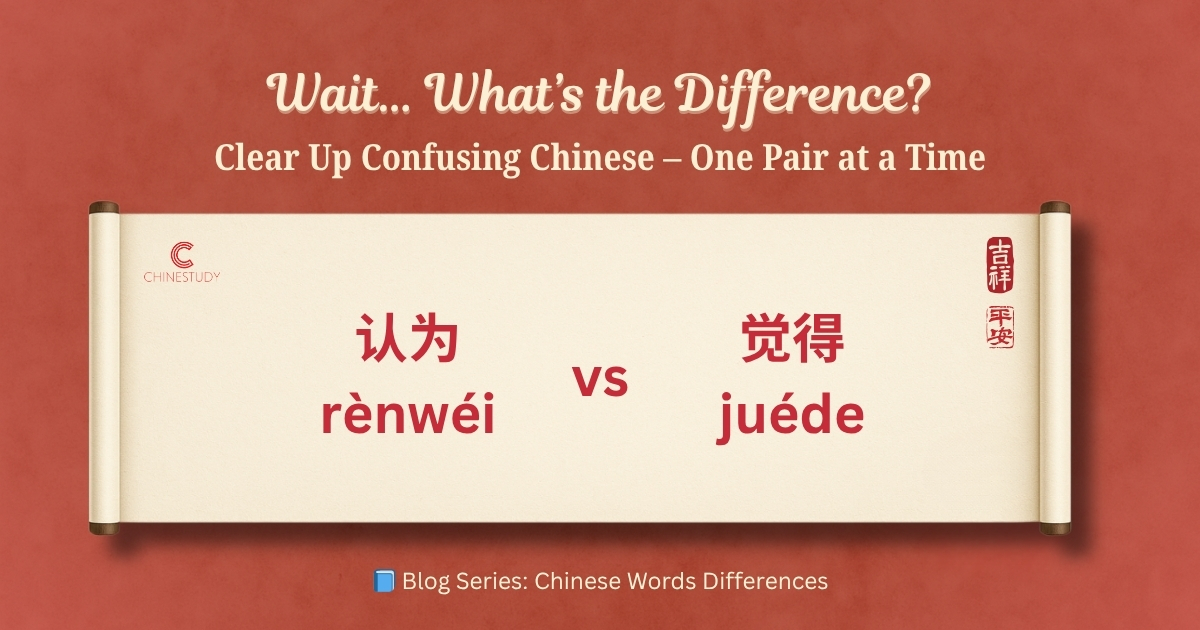
🤔 认为 rènwéi vs 觉得 juéde – What’s the Difference?
认为 and 觉得 both mean “to think,” but they feel very different. One is formal and logical, the other casual and personal. Learn when to use each one with simple examples!
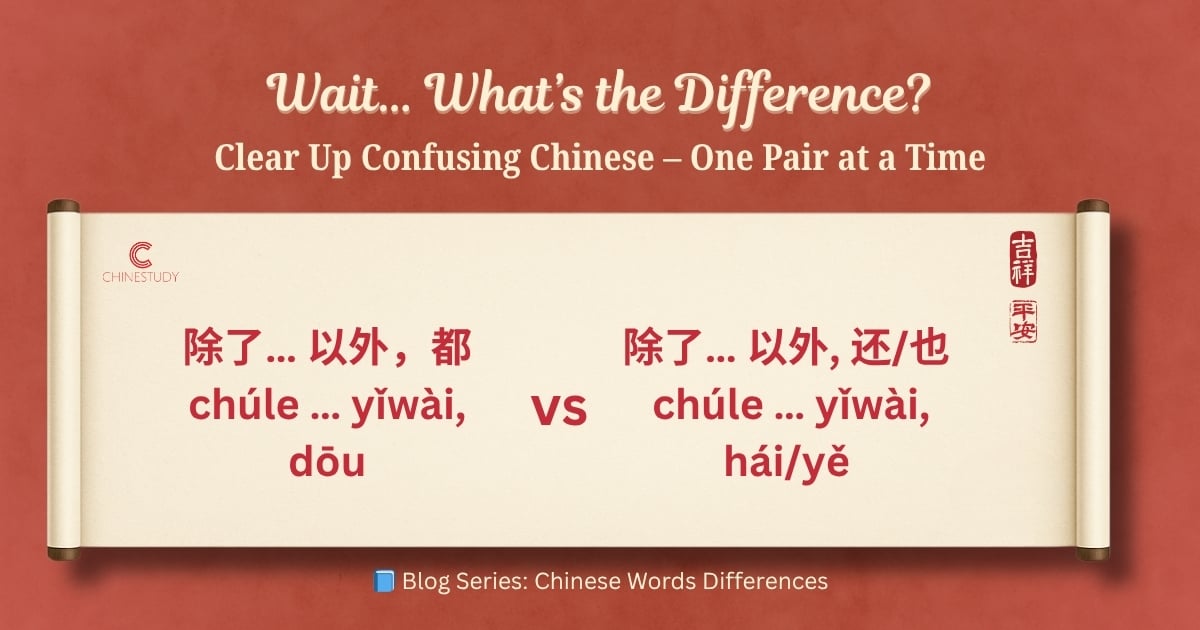
🤯 除了…以外,都 vs 除了…以外,还 / 也 – What’s the Difference?
Learn the key difference between exclusive and inclusive meaning in Chinese using 除了…以外. Should you use 都 or 还?This blog clears it up with simple rules and fun examples.
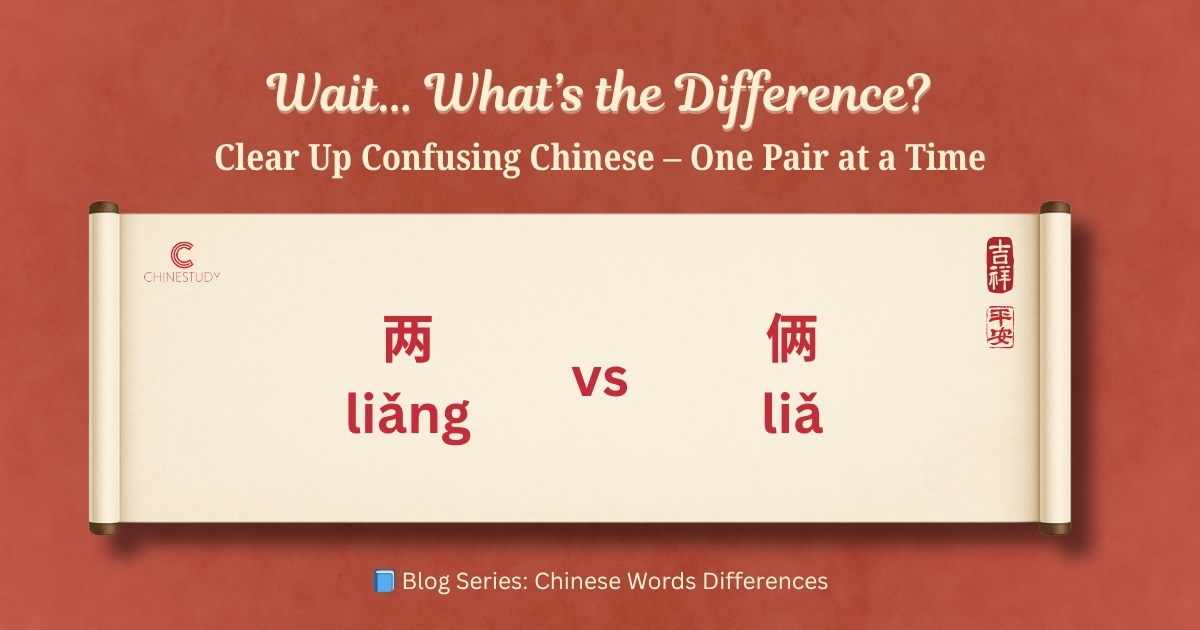
🧐 两 liǎng vs 俩 liǎ – What’s the Difference?
Think 两 (liǎng) and 俩 (liǎ) are the same? Not quite! This short guide will help you tell them apart and avoid common mistakes.
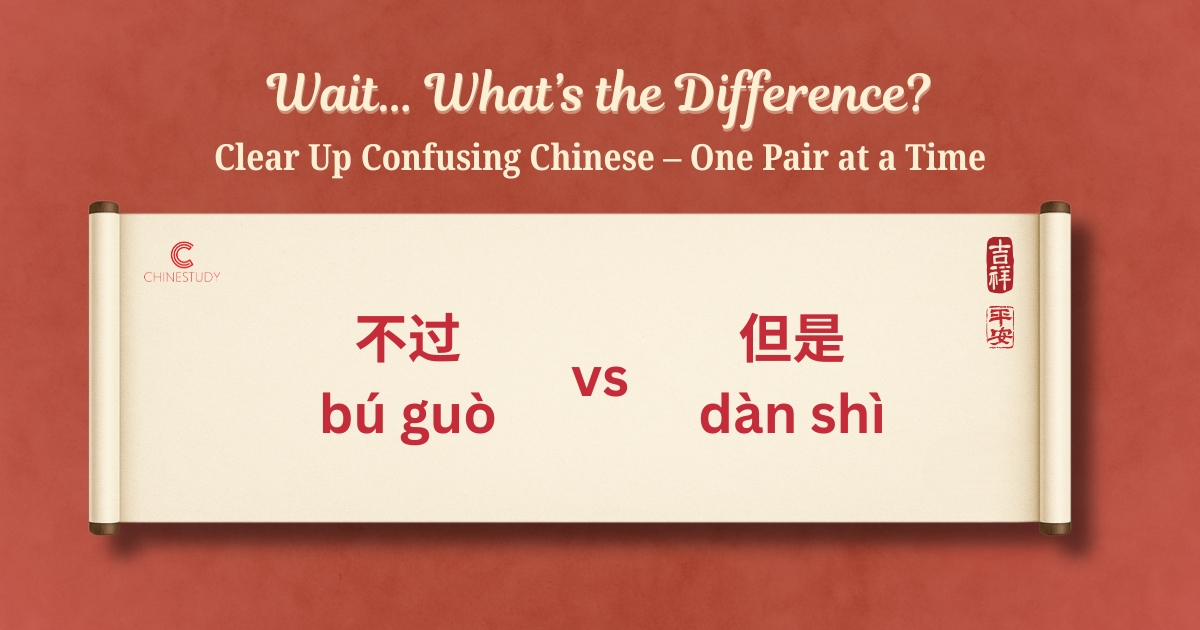
🧐 不过 búguò vs 但是 dànshì – What’s the Difference?
Think 不过 and 但是 both mean “but”? You’re not wrong — but they feel very different! This blog shows how to use each one naturally, with examples, grammar tips, and a short quiz.
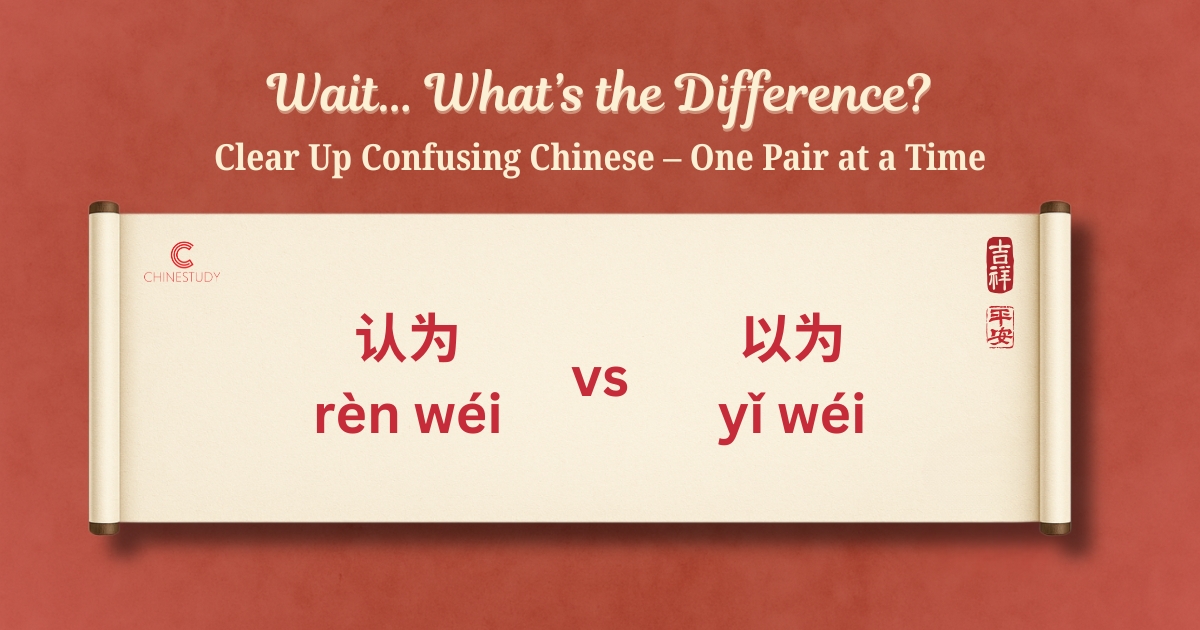
🤔 认为 rènwéi vs 以为 yǐwéi – What’s the Difference?
认为 vs 以为 — they both mean “to think,” but one is what you believe and the other is what you thought… but were wrong! This blog shows the difference with simple examples and a quiz.
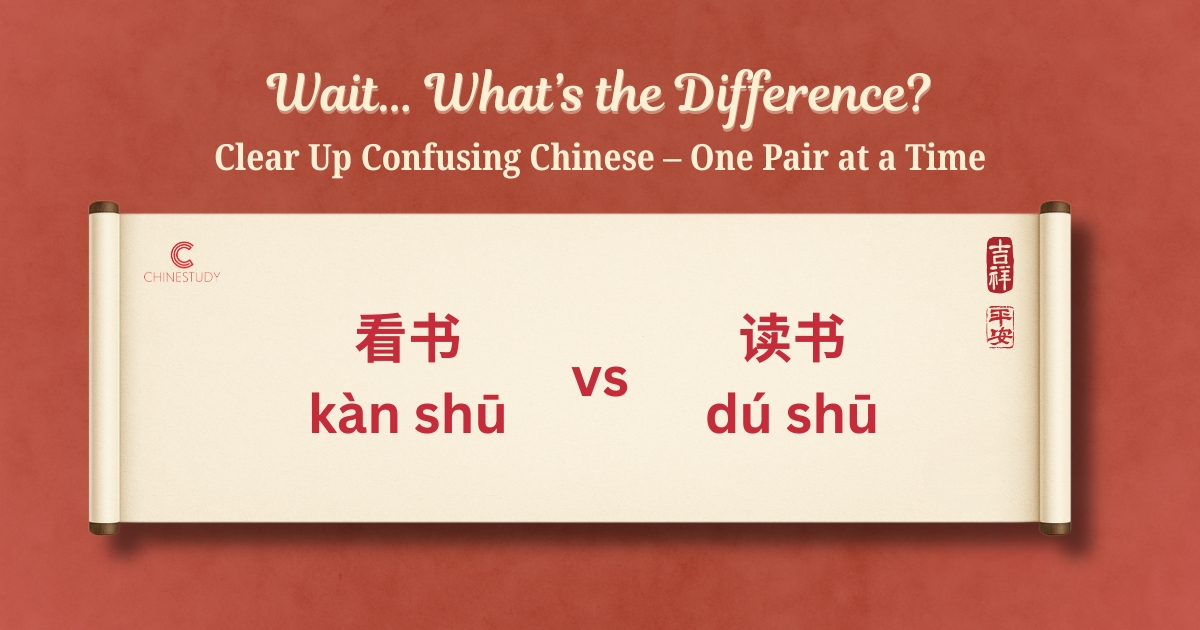
🧐 看书 kàn shū vs 读书 dú shū – What’s the Difference?
Think 看书 and 读书 mean the same thing? Not quite! Learn when to use each one — whether you’re reading for fun or studying hard. This post has clear examples, common mistakes, and a quick quiz to test yourself! 📚✅
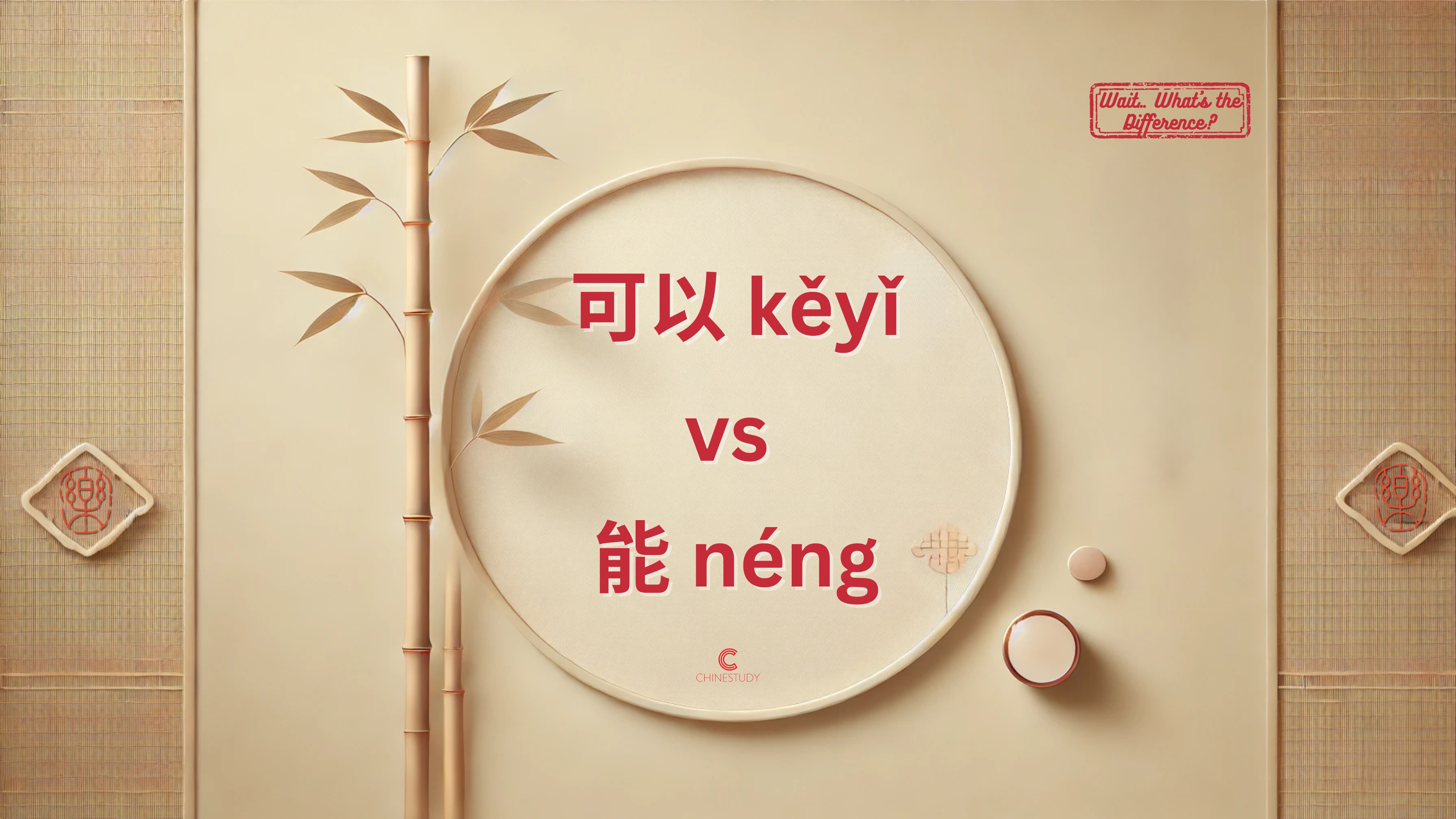
🧐 可以 kěyǐ vs 能 néng – What’s the Difference?
Confused about when to use 可以 and when to use 能? This guide makes it simple! Learn how to express permission and ability with real-life examples and fun practice.
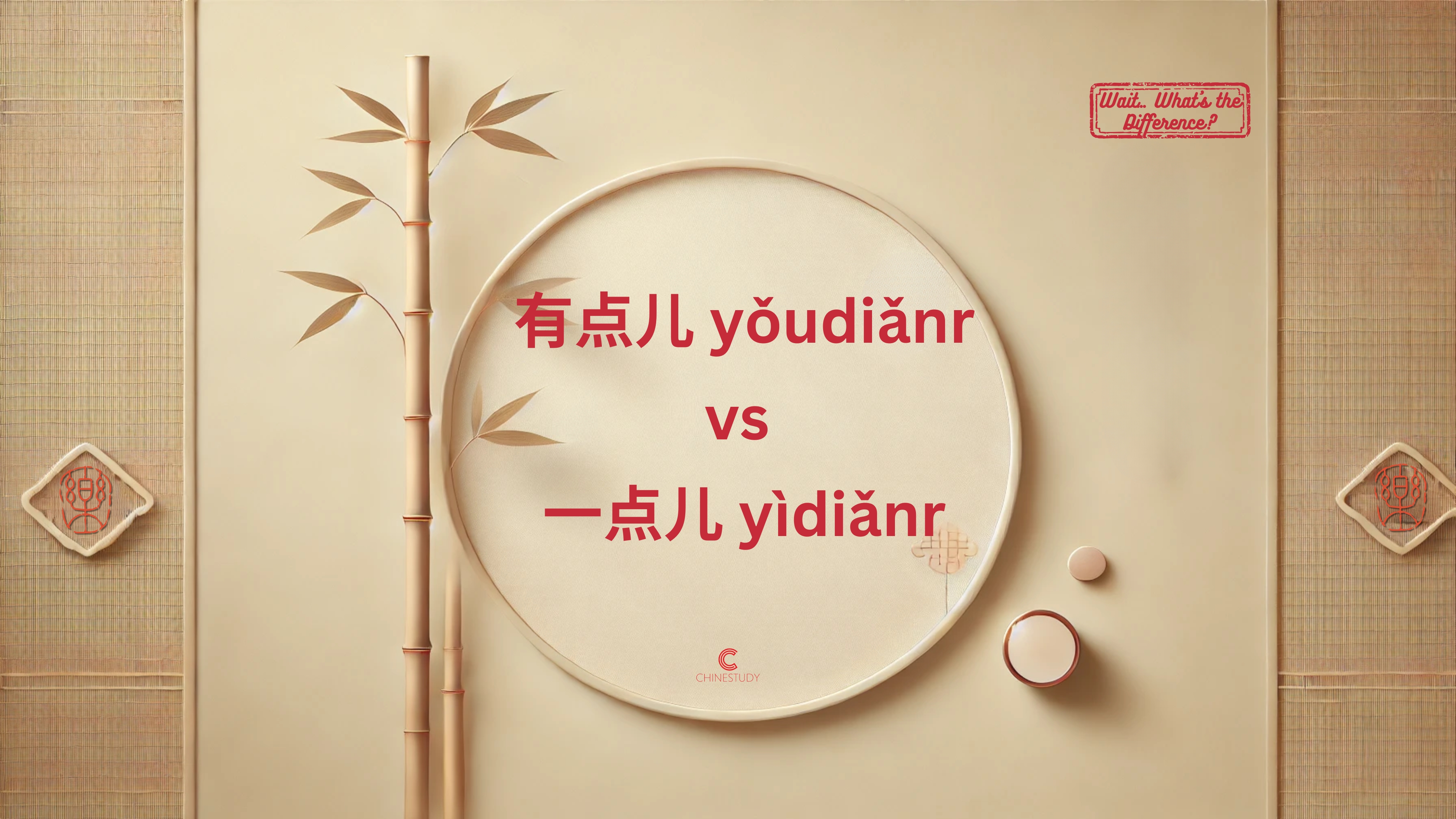
🧐 有点儿 yǒudiǎnr vs 一点儿 yìdiǎnr – What’s the Difference?
Learn the difference between 有点儿 and 一点儿 in Chinese. This clear and fun guide explains when to use each word with easy examples and common mistakes to avoid.
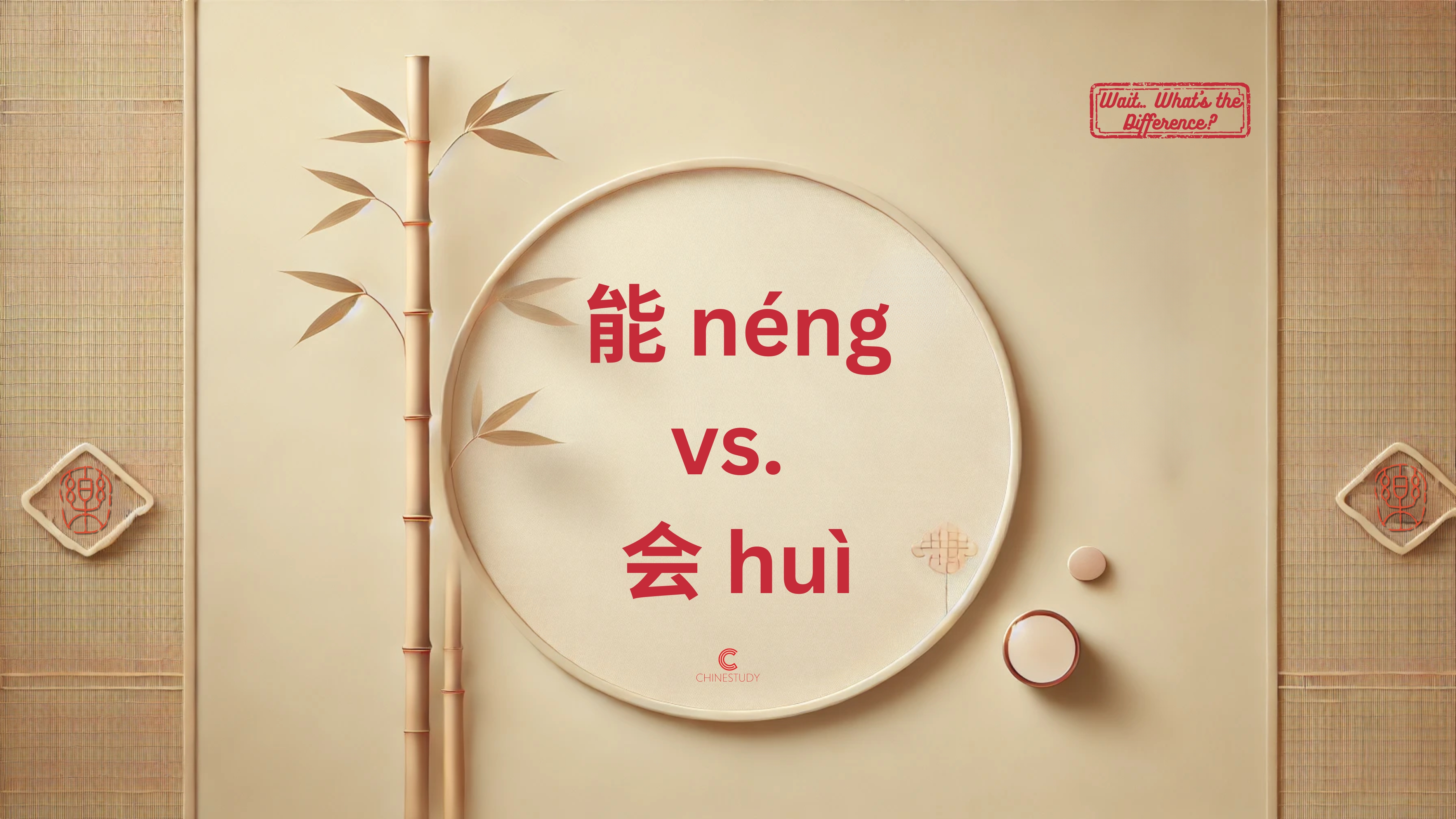
🧐 能 néng vs. 会 huì – What’s the Difference?
What’s the difference between 能 (néng) and 会 (huì)? Both mean "can," but they’re used differently! This blog explains how to use them with fun examples and easy tips.
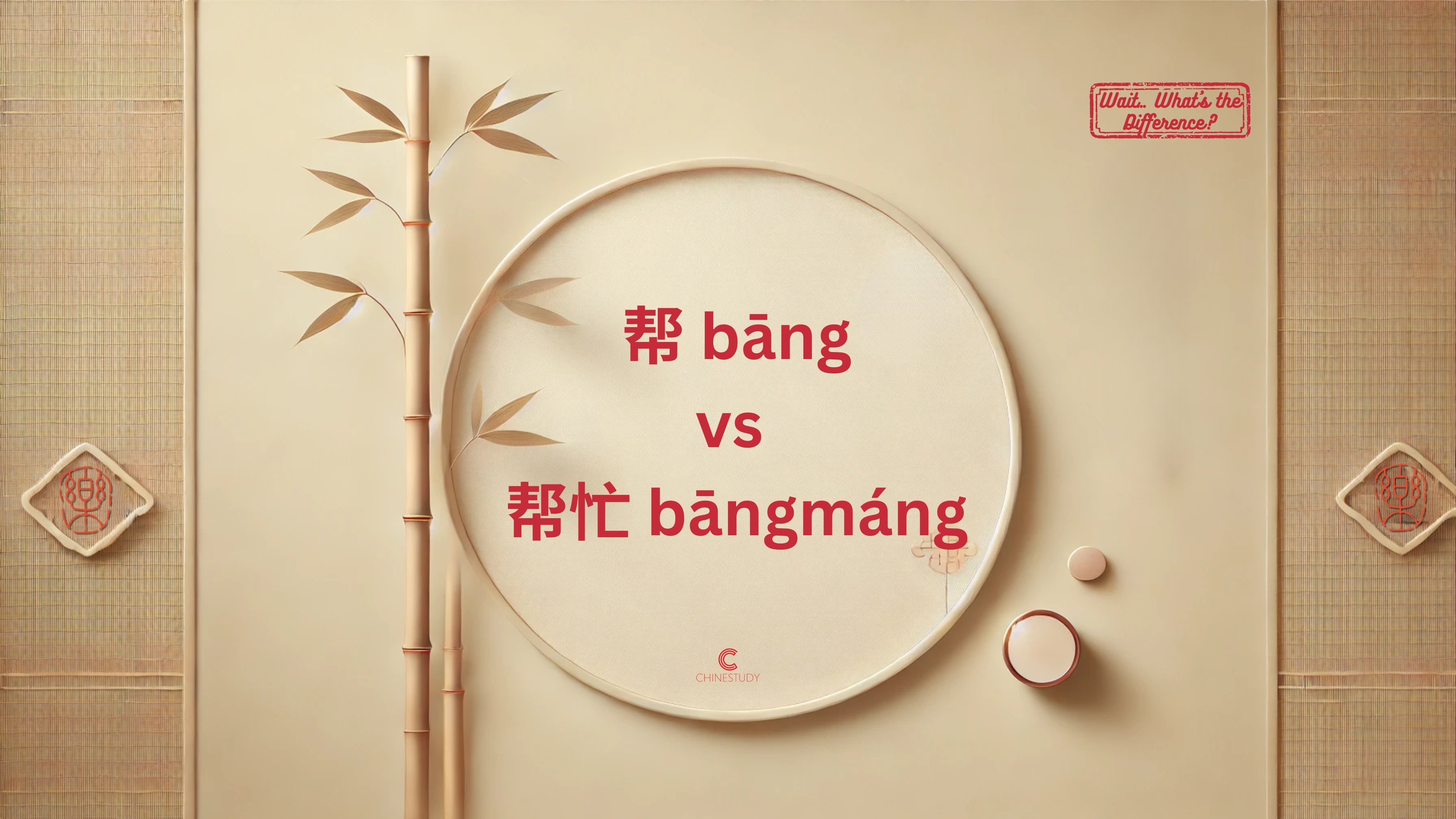
🔍 帮 bāng vs 帮忙 bāngmáng – What’s the Difference?
Learn how to use 帮 and 帮忙 correctly in Chinese. This short guide explains the difference with clear examples and helpful tips for learners.
